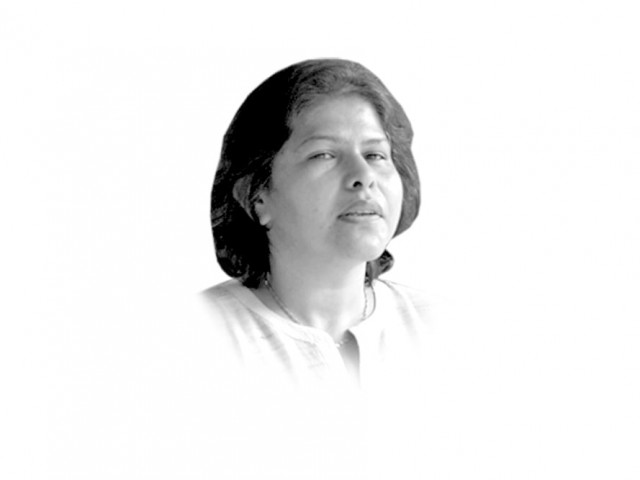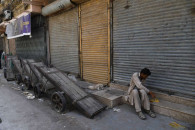Obituary of liberal-secularism — II
Democracy means Islamists can do what they want in their country as long as they stay away from the developed world.

A few months ago, a visiting American academic reputed as a South Asia expert, was probing for a right-wing political leader or party that could get other right-wingers to follow him. During a conversation with a European diplomat, it transpired that his country sought to cooperate with Islamists in the Arab world, especially those who are willing to coexist with the international community. Bottom line: Islamists can do almost whatever they want in their country as long as they stay away from violence and the developed world.
Liberalism seems to have failed in the Muslim world and is taking down secularism with it. There are two basic reasons for this. First, the 20th century Muslim world is not largely known for liberalism, including Turkey which had secularism but not liberalism. It is important to note that liberalism is a combination of social, political and ideological plurality. Secularism is not supposed to negate faith but allow for a pluralistic society where all faiths can grow without any pressure from the state. Anti-mullahism does not automatically translate into liberalism until it is accompanied by political liberalism as well. The Turkish ruling elite, which partnered with military-authoritarianism, caused the frustration that led to the rise of the AKP (Adalet Ve Kalkinma Partisi — or Party for Justice and Progress). This also means that the intensity of Islamism will vary from state to state. While in some countries Islamism may support liberalism, in countries like Saudi Arabia, Pakistan, Iran and others, it may eliminate it. For those that underestimate the ideological power of the ahle Hadith and Deobandi militant outfits, their real nuisance lies in converting people to the idea that a Muslim society’s main task is to prepare for a never-ending conflict with the world and convert their own and other societies to a lifestyle they believe has been ordained by God. The formula is not liberal at all because it does not even allow for multiple interpretations of the holy text, leave alone other faiths.
But the second reason that the world may eventually come to terms with Islamism is due to the growth of scholars in western universities in particular, who are shaping the academic understanding of the Muslim world in the West in a certain way. These scholars, mostly anthropologists, present Islamism as a critical part of the local culture, which often leads to the conclusion that liberalism is a cultural anomaly. In forcing their affected conclusions, these scholars brutally misconstrue theoretical concepts to fit their conclusions. Scholars of Pakistani origin, for instance, have tried to tailor the concept of secularisation, agency and democratic debate as if to prove rabid Islamism was a normal thing in a society that was once known for cultural and religious pluralism. Then there are others who present madrassas like Jamia Hafsa and others as normal entities. There is no regard in this discourse for historical realities such as the close bond between state and non-state Islamists to serve the state’s interests, which has resulted in strengthening the Islamists.
While the liberal Muslim tradition got pushed back due to several reasons that cannot be discussed in this limited space, the rabid narrative got popularised because of massive financial and political support from Saudi Arabia, Libya, the Gulf States and Iran. Indeed, a lot of the Islamic centres in the West or Islamic studies programmes get funding from the above-mentioned states. Not to mention, the damage done by security studies to the study of Muslim societies. In an urge to create workable policy options, a security study tends to narrowly compartmentalise situations and characters. It means that entities like the Lashkar-e-Taiba or other militant outfits are presented as normal and part of indigenous growth. One way to stop this development is for the liberal discourse to base its argument on the liberal Islamic tradition. Liberalism is not foreign to Islam. People would benefit a lot if they went through the works of scholars like Abdullahi An’Naeem, Khalid Abul Fazl and others to understand that a peculiar kind of Islamism may not represent Islam.
Published in The Express Tribune, August 28th, 2011.



















COMMENTS
Comments are moderated and generally will be posted if they are on-topic and not abusive.
For more information, please see our Comments FAQ